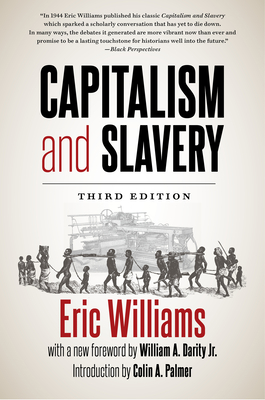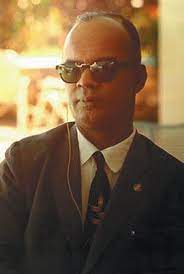

 University of North Carolina Press
University of North Carolina Press
Capitalism and Slavery, Third Edition


Key Metrics
- Eric Williams
- University of North Carolina Press
- Hardcover
- 9781469663678
- 9.21 X 6.14 X 0.75 inches
- 1.31 pounds
- History > Europe - Great Britain - General
- English
 Secure Transaction
Secure TransactionBook Description
William A. Darity Jr.'s new foreword highlights Williams's insights for a new generation of readers, and Colin Palmer's introduction assesses the lasting impact of Williams's groundbreaking work and analyzes the heated scholarly debates it generated when it first appeared.
Author Bio
Eric Williams, in full Eric Eustace Williams, (born Sept. 25, 1911, Port of Spain, Trinidad—died March 29, 1981, St. Anne, near Port of Spain), first and longtime prime minister of independent Trinidad and Tobago (1962–81), who founded (1956) the People’s National Movement (PNM) and led his country to independence.
Williams was educated at Queen’s Royal College, Port of Spain, and at the University of Oxford, from which he received a B.A. in 1932 and a D.Phil. in 1938, with studies in history and political science. In 1939 he went to the United States and joined the faculty of social and political science at Howard University. While he was at Howard, Williams became associated with the Caribbean Commission that was established by the United States, Great Britain, France, and the Netherlands in an effort to coordinate the economic development of the Caribbean area. His aggressive, commanding role in the commission, however, tended to alienate the national powers, especially the United States, and in 1955–56 he organized the PNM party, which won the 1956 general elections. He became chief minister in the country’s first party government, and, with the achievement of internal self-government in 1959, he served as premier. The PNM won the December 1961 elections by a landslide. Williams became prime minister of the colony and then of the new nation upon its achieving independence in August 1962. He made the country a republic in 1976.
As prime minister, Williams practiced what was called “pragmatic socialism,” which stressed social services, improved education, and economic development through the cautious attraction of foreign investment capital. The policy was fruitful in making Trinidad and Tobago the wealthiest Commonwealth Caribbean nation. He was successively reelected and served as prime minister until his death.
Williams was the author of a number of books, among which were The Negro in the Caribbean (1942), Capitalism and Slavery (1944), History of the People of Trinidad and Tobago (1962), British Historians and the West Indies (1964), Inward Hunger: The Education of a Prime Minister (1969), and From Columbus to Castro: The History of the Caribbean, 1492–1969 (1970).
Source: Britannica.com
Videos
No Videos
Community reviews
Write a ReviewNo Community reviews